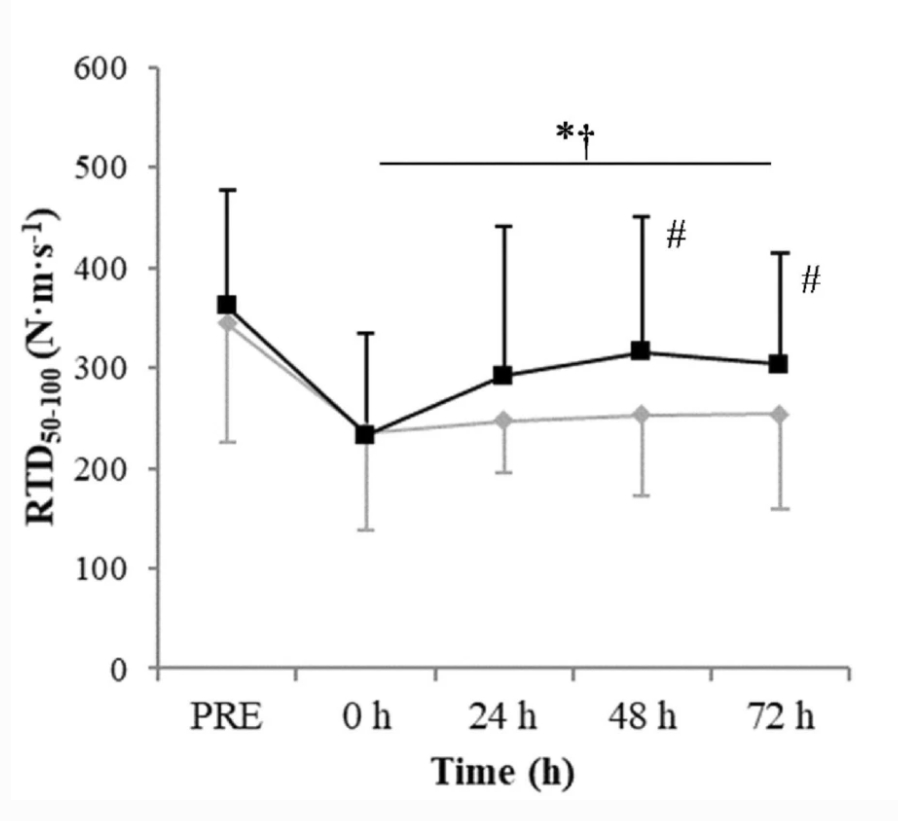Effect of mate tea consumption on rapid force production after eccentric exercise: a randomized, controlled, crossover study
Bruno Monteiro Moura, Sport Sciences for Health volume 16, pages571–581(2020)
Background and purpose
Unusual eccentric exercise (EE) may affect muscle ability to produce rapid force. Previous study suggested that short-term mate tea (MT) consumption may enhance muscle strength recovery from EE, but MT benefits on the rate of torque development (RTD) are unknown. This study investigated the effect of MT on RTD and muscle damage and antioxidant defence biomarkers following EE.
Methods
In a randomised, crossover design, 12 men drank either MT or water (control; idiot) for 11 days. On the 8th day, 3 sets of 20 maximal isokinetic eccentric for elbow flexors with one arm were performed. RTD of the elbow flexor muscles at 0–50, 0–100, 50–100, 0–200, and 100–200 ms were assessed before and at 0, 24, 48, and 72 h after exercise. Blood samples were obtained before and at 24, 48, and 72 h after exercise and analysed for creatine kinase (CK), aldolase (ALD), total phenols, and reduced:oxidized glutathione (GSH:GSSG) ratio.
Results
RTD0–50 deficit after EE was independent of treatment. Compared with idiot, MT improved RTD0–100 at 48 h (21%, P = 0.015) and 72 h (24%, P = 0.022); RTD0–200 at 48 h (18%, P = 0.034) and 72 h (21%, P = 0.029); RTD50–100 at 48 h (25%, P = 0.001) and 72 h (19%, P = 0.011); and RTD100–200 at 72 h (28%, P = 0.038). CK peaked (P = 0.012) in both trials at 72 h, and ALD was higher in MT than in idiot before and at 24 h (P = 0.005 and P < 0.001, respectively). Compared with idiot, MT showed higher values (P < 0.05) before and until 48 h after EE, for total phenols, and over 72 h after EE, for GSH:GSSG ratio.
Conclusion
MT intake favoured the recovery of RTD >50 ms by 2–3 days after EE. Furthermore, MT ameliorated circulating levels of muscle damage and antioxidant biomarkers irrespectively of exercise.














